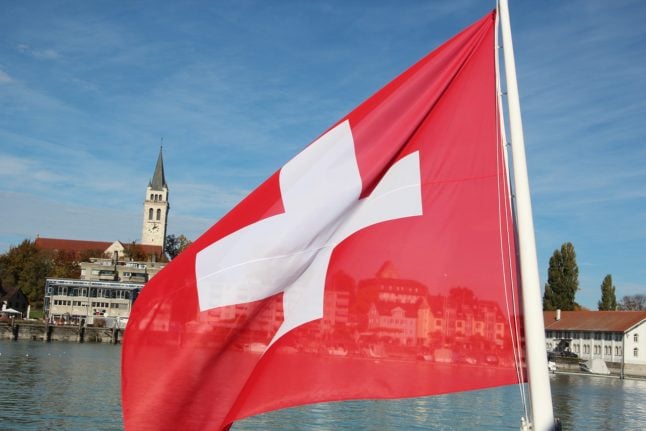The Swiss are generally very patriotic and have a strong sense of national pride and identity. It would therefore be reasonable to expect that burning, or otherwise desecrating, their flag would be illegal, as it is in many countries.
However, the National Council’s Legal Affairs Committee rejected this week by 15 votes to 10 a motion submitted by MP Jean-Luc Addor, which aimed to outlaw intentional destruction of “Swiss flag and other emblems of Swiss sovereignty”.
What does the current legislation say in this matter?
Interestingly, the law states that no flag (either Swiss, cantonal, or municipal) can be desecrated if it is displayed by authorities, though no such limits are imposed in the private sphere.
In other words, if a flag is flown in “official” capacity on August 1st, Swiss national holiday, and someone inflicts intentional damage to it, then yes, that is illegal.
But if, say, football fans tear or burn the flag after a game because the Swiss team lost, this is perfectly legal.
Addor, the MP who filed the motion, argued however that the flag, which is a symbol of Switzerland, “must be protected, regardless of where it is displayed or by whom it is displayed”.
Freedom of expression
The majority of the National Council Committee disagreed with this stance, however.
They pointed out that destroying public property can’t be treated in the same way (from a legal perspective) as destroying one’s own personal belongings.
The official line is that “even if such signs of protest [in the private sphere] express dissatisfaction with the State, they cannot be criminalised out of respect for freedom of expression and the principle of proportionality”.
Committee members added that even though neighbours Germany, Italy and Austria want to “protect their emblems of sovereignty, in Switzerland, such provisions would not be effective”.



 Please whitelist us to continue reading.
Please whitelist us to continue reading.
Member comments